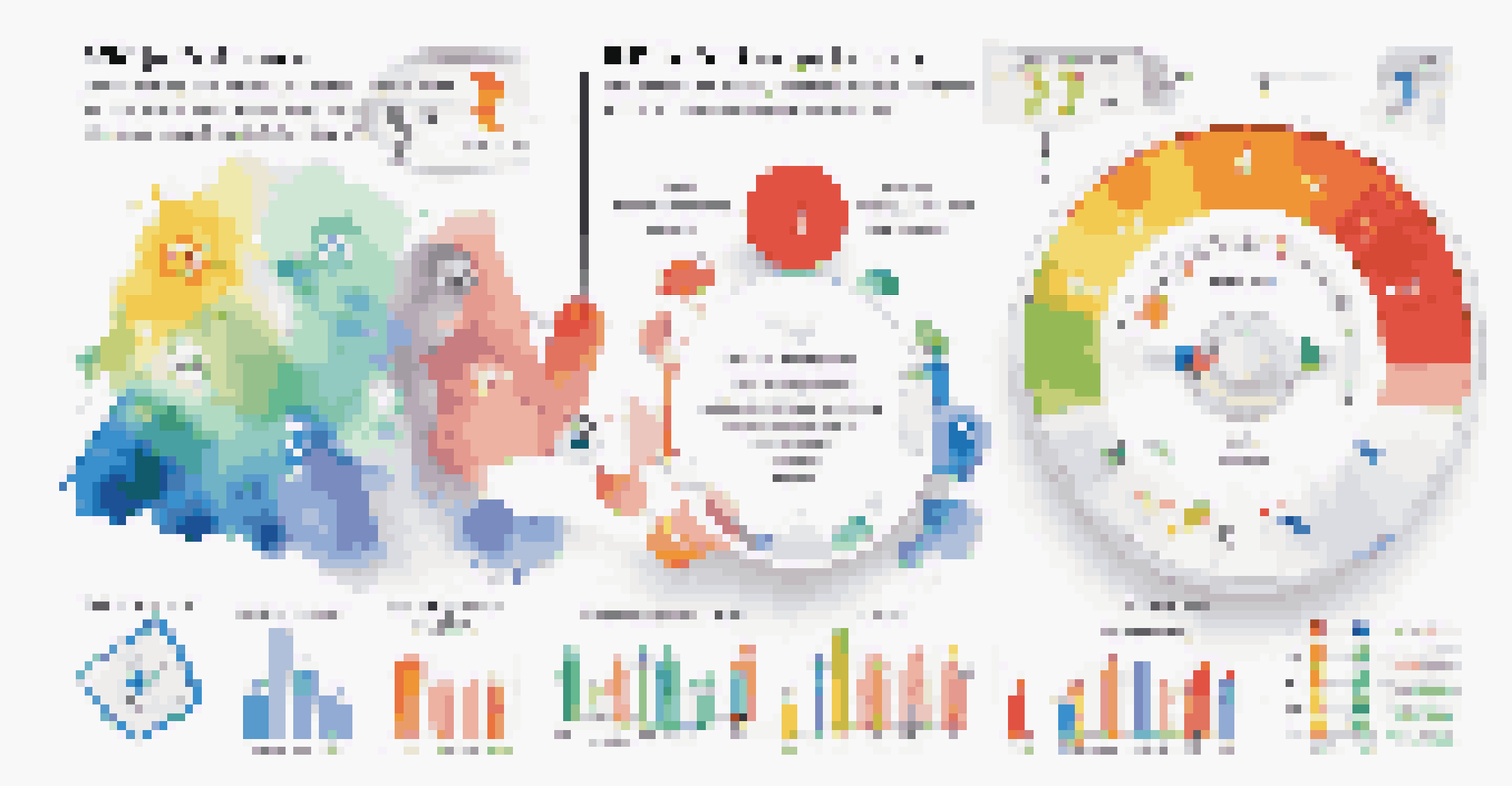Aligning Business Goals with Data-Driven Insights

Understanding the Importance of Data in Business Strategy
In today's digital landscape, data has become the lifeblood of business strategy. It provides insights that can drive decisions, shape strategies, and ultimately lead to success. Without leveraging data, companies risk making uninformed choices that could jeopardize their goals.
In God we trust; all others bring data.
For instance, consider a retail business looking to expand its product line. By analyzing sales data, they can identify which items are popular and which aren't, allowing them to make informed decisions that align with customer preferences. This careful consideration ensures that their growth strategy is not just based on guesswork.
Ultimately, understanding data's role in shaping business strategy is essential for any organization aiming to thrive in a competitive market. By aligning data insights with business goals, companies can set themselves on a path toward sustainable growth.
Identifying Core Business Goals to Drive Data Collection
Before delving into data analysis, it's crucial to define clear business goals. These goals act as a compass, guiding what data needs to be collected and how it should be analyzed. For example, a company may aim to increase customer retention by 20% over the next year; this goal will determine the types of data they need.

By focusing on specific objectives, businesses can streamline their data collection efforts. This targeted approach not only saves time but also ensures that the insights gathered are relevant and actionable. Imagine trying to navigate a forest without a map; having defined goals is like having a clear path.
Data Drives Business Success
Leveraging data insights is essential for informed decision-making and achieving business goals.
In short, aligning data collection with core business goals is the first step toward meaningful insights. When businesses know what they want to achieve, they can harness data effectively to reach those milestones.
Utilizing Data Analytics Tools for Informed Decision-Making
Once clear goals are set, the next step is to leverage data analytics tools. These tools can help businesses sift through vast amounts of data, extracting meaningful insights that drive decision-making. Whether it's customer relationship management (CRM) software or business intelligence platforms, the right tools make a world of difference.
Data is the new oil.
For example, a marketing team might use analytics software to track campaign performance, allowing them to adjust strategies in real-time. This agile approach ensures that the marketing efforts remain aligned with the overarching business goals, maximizing return on investment.
In essence, incorporating data analytics tools empowers businesses to make better decisions. By turning raw data into actionable insights, organizations can navigate complexities with confidence and clarity.
Creating a Data-Driven Culture Within Your Organization
Building a data-driven culture is essential for long-term success. This means fostering an environment where data is valued and used consistently across all departments. When employees recognize the importance of data in their roles, they are more likely to contribute to the organization's overall goals.
For instance, a sales team that regularly reviews performance metrics is better equipped to understand customer needs and adjust their strategies accordingly. By making data a part of daily conversations, businesses can encourage collaboration and innovation.
Define Goals for Effective Data Use
Clear business goals guide data collection and analysis, ensuring relevant and actionable insights.
Ultimately, a data-driven culture leads to better alignment with business goals. When everyone in the organization understands and utilizes data, the path to achieving goals becomes clearer and more attainable.
Measuring Success: Key Performance Indicators (KPIs)
To ensure alignment between business goals and data insights, it's vital to establish Key Performance Indicators (KPIs). These metrics provide tangible benchmarks for measuring success and help organizations track their progress. For example, if a business aims to enhance customer satisfaction, a relevant KPI might be the Net Promoter Score (NPS).
By regularly monitoring KPIs, businesses can quickly identify areas that need improvement. This proactive approach allows for adjustments to be made before minor issues escalate into major setbacks. Think of KPIs as a health check for the business; they reveal what's working and what isn't.
In summary, KPIs serve as essential tools for measuring success. By aligning these indicators with business goals, companies can ensure that their strategies remain on track and focused.
Iterating Strategies Based on Data Insights
The world of business is ever-changing, and it's crucial to remain flexible. Iteration based on data insights allows companies to adapt their strategies as needed. For example, if customer feedback reveals dissatisfaction with a product feature, businesses can quickly pivot to address those concerns.
This iterative approach is akin to a chef refining a recipe over time; each adjustment leads to a better final dish. By continuously analyzing data and adjusting strategies, organizations can stay aligned with their goals while responding to market demands.
Adapt Strategies with Data Insights
Iterating strategies based on data allows businesses to remain flexible and responsive to market changes.
Ultimately, embracing a mindset of iteration fosters resilience. Companies that adapt based on data insights are more likely to thrive in a dynamic business landscape.
The Future: Embracing Emerging Technologies for Data Insights
As technology evolves, so do the opportunities for harnessing data. Emerging technologies like artificial intelligence (AI) and machine learning are revolutionizing the way businesses gather and analyze data. These tools can uncover patterns and trends that humans might miss, providing deeper insights into customer behavior and market dynamics.
For instance, AI can help businesses predict customer needs, allowing for personalized marketing strategies that align closely with consumer preferences. This not only enhances customer satisfaction but also drives sales and loyalty.

In conclusion, embracing emerging technologies is essential for staying ahead of the curve. By leveraging advanced data insights, companies can ensure their business goals remain relevant and achievable in an ever-evolving landscape.